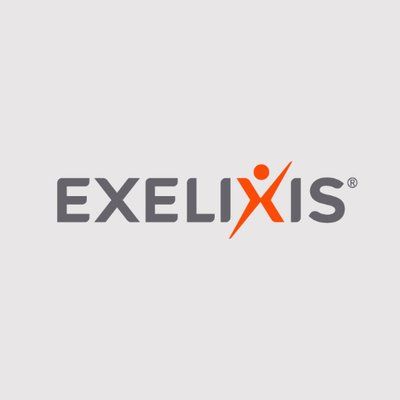Request Demo
Last update 08 May 2025
TrkB x RET x c-Kit x TYRO3 x VEGFR1 x VEGFR2 x Tie-2 x VEGFR3 x c-Met x ROS1 x AXL
Last update 08 May 2025
Related
1
Drugs associated with TrkB x RET x c-Kit x TYRO3 x VEGFR1 x VEGFR2 x Tie-2 x VEGFR3 x c-Met x ROS1 x AXLMechanism AXL inhibitors [+10] |
Active Org. |
Originator Org. |
Active Indication |
Inactive Indication |
Drug Highest PhaseApproved |
First Approval Ctry. / Loc. United States |
First Approval Date29 Nov 2012 |
275
Clinical Trials associated with TrkB x RET x c-Kit x TYRO3 x VEGFR1 x VEGFR2 x Tie-2 x VEGFR3 x c-Met x ROS1 x AXLNCT06502171
A Phase 1/1b/2 Study of Cabozantinib in Combination With Selumetinib for Plexiform Neurofibroma in Adults and Adolescents With Neurofibromatosis Type 1
Based on the clinical activity of both selumetinib and cabozantinib as monotherapies in clinical trials, the demonstrated activity of these agents in reduced doses in preclinical studies, and the non-overlapping toxicity profiles, the study will assess the tolerability and efficacy of selumetinib and cabozantinib in combination in participants with NF1 ≥16 years old with progressive and/or symptomatic PN in a phase 1/1b/2 clinical trial.
Trial Design Phase 1 This will be an open label, dose escalation phase. Dose level escalation will be determined by a rolling six design. In this design, up to 6 participants can be enrolled at a given dose level and then evaluated for dose limiting toxicity (DLT) within the DLT window. The DLT window is defined as 16 weeks in this study based on the long half-life of cabozantinib and the desire to have maximum confidence about long-term tolerability of the combination prior to proceeding to the next dose level.
Phase 1b Once the recommended phase 2 dose has been determined in phase 1, an expanded cohort of 12 participants will be enrolled in phase 1b portion of the study.
Phase 2 This will be an open label, single-arm phase using the recommended phase 2 dose.
Trial Design Phase 1 This will be an open label, dose escalation phase. Dose level escalation will be determined by a rolling six design. In this design, up to 6 participants can be enrolled at a given dose level and then evaluated for dose limiting toxicity (DLT) within the DLT window. The DLT window is defined as 16 weeks in this study based on the long half-life of cabozantinib and the desire to have maximum confidence about long-term tolerability of the combination prior to proceeding to the next dose level.
Phase 1b Once the recommended phase 2 dose has been determined in phase 1, an expanded cohort of 12 participants will be enrolled in phase 1b portion of the study.
Phase 2 This will be an open label, single-arm phase using the recommended phase 2 dose.
Start Date01 Jul 2025 |
Sponsor / Collaborator |
NCT06900595
A Phase II Study of Cabozantinib in Combination With Cemiplimab (Cabo-Cemiplimab) Versus Cabozantinib Alone in Adolescents and Adults With Advanced Adrenocortical Cancer
This phase II trial compares the effect of giving cabozantinib with or without cemiplimab in patients with adrenocortical cancer that has spread to nearby tissue or lymph nodes (locally advanced), and that cannot be removed by surgery (unresectable) or that has come back after a period of improvement (recurrent) or that has spread from where it first started (primary site) to other places in the body (metastatic). Cabozantinib is in a class of medications called tyrosine kinase inhibitors. It works by blocking the action of an abnormal protein that signals cancer cells to multiply, which may help keep cancer cells from growing. Immunotherapy with monoclonal antibodies, such as cemiplimab, may help the body's immune system attack the cancer, and may interfere with the ability of tumor cells to grow and spread. Giving cabozantinib with cemiplimab may kill more tumor cells in patients with locally advanced unresectable or recurrent/metastatic adrenocortical cancer.
Start Date13 Jun 2025 |
Sponsor / Collaborator |
100 Clinical Results associated with TrkB x RET x c-Kit x TYRO3 x VEGFR1 x VEGFR2 x Tie-2 x VEGFR3 x c-Met x ROS1 x AXL
Login to view more data
100 Translational Medicine associated with TrkB x RET x c-Kit x TYRO3 x VEGFR1 x VEGFR2 x Tie-2 x VEGFR3 x c-Met x ROS1 x AXL
Login to view more data
0 Patents (Medical) associated with TrkB x RET x c-Kit x TYRO3 x VEGFR1 x VEGFR2 x Tie-2 x VEGFR3 x c-Met x ROS1 x AXL
Login to view more data
1
News (Medical) associated with TrkB x RET x c-Kit x TYRO3 x VEGFR1 x VEGFR2 x Tie-2 x VEGFR3 x c-Met x ROS1 x AXL30 Jan 2025
Several months into a multiyear quest to “rigorously prioritize” its pipeline, Takeda is cutting a handful of programs.
The company revealed the changes on Thursday in its third-quarter earnings
report
, in which CEO Christophe Weber announced plans to retire in June 2026. Weber last year laid out the road map for a
broad restructuring
aimed at simplifying the company’s structure, removing layers and broadening roles. Takeda has also made several pipeline cuts over the last year, and it’s now
ending work
on a Phase 3 program for soticlestat in a form of epilepsy.
In 2024, soticlestat failed separate Phase 3 trials in Dravet syndrome and Lennox-Gastaut syndrome, and Takeda had already discontinued development in the latter condition. After meeting with the FDA about an indication for Dravet syndrome, a genetic form of epilepsy, regulators said current data “would not be capable of demonstrating substantial evidence of effectiveness,” Takeda said.
The company added that soticlestat’s financial impact on full-year results is “expected to be immaterial.”
Another Phase 3 program is also getting the boot. Takeda said it’s stopping work on the Exelixis-partnered drug Cabometyx in combination with Roche’s Tecentriq in metastatic castration-resistant prostate cancer. Cabometyx was originally developed by Exelixis, and then Takeda
inked a deal
for commercial and development rights in Japan in 2017. The drug is currently approved in the US for thyroid cancer, hepatocellular carcinoma and renal cell carcinoma.
Takeda said the decision to pull the Cabometyx-Tecentriq combo in metastatic castration-resistant prostate cancer was “based on the trial results and assessment of Takeda’s development strategy.”
A Phase 1 trial for TAK-500 in solid tumors was also closed “due to dose-limiting toxicities.”
For the second consecutive quarter, Takeda raised its full-year revenue guidance. The company
said in October
that it expects full-year revenue to come in flat or slightly increase. It now expects an increase in revenue by a low single-digit percentage.
The company also touted three Phase 3 readouts coming in 2025, including oveporexton in narcolepsy type 1, zasocitinib in psoriasis, and rusfertide for a rare blood disorder called polycythemia vera.
“We are focused on advancing our promising late-stage pipeline and preparing for future launches. I couldn’t be more excited about what lies ahead for Takeda,” Weber said during an analyst call.
Phase 3Drug ApprovalPhase 1Clinical Trial TerminationLicense out/in
Analysis
Perform a panoramic analysis of this field.
login
or

AI Agents Built for Biopharma Breakthroughs
Accelerate discovery. Empower decisions. Transform outcomes.
Get started for free today!
Accelerate Strategic R&D decision making with Synapse, PatSnap’s AI-powered Connected Innovation Intelligence Platform Built for Life Sciences Professionals.
Start your data trial now!
Synapse data is also accessible to external entities via APIs or data packages. Empower better decisions with the latest in pharmaceutical intelligence.
Bio
Bio Sequences Search & Analysis
Sign up for free
Chemical
Chemical Structures Search & Analysis
Sign up for free


